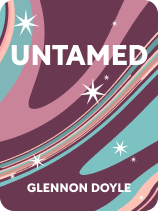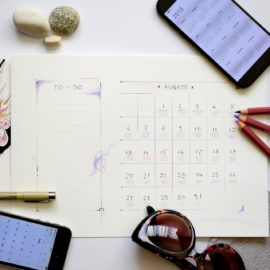

This article is an excerpt from the Shortform book guide to "Untamed" by Glennon Doyle. Shortform has the world's best summaries and analyses of books you should be reading.
Like this article? Sign up for a free trial here .
How does society suppress our true selves? What does it really mean to connect with yourself?
Author Glennon Doyle observes that women are conditioned to please and seek approval from others—as a result, they don’t often trust their instincts and search externally for advice and validation. She wanted to find a way to connect with herself deeply to make decisions that were based on her inner wisdom and intuition rather than the opinions of outside sources.
Read on to find out why connecting with yourself frees you from being controlled by society’s expectations and empowers you to make your own choices.
Captivity and the Pathways to Freedom
Do you ever feel that there is a more authentic, primal self within you waiting to be free? Author, public speaker, and activist Glennon Doyle has felt this way, too. She used to feel like a wild animal in captivity—conditioned not to feel, think, or trust herself until she learned how to break society’s rules, upend cultural expectations, and rebuild her life.
How to Connect with Yourself: The Cheetah Story
Doyle’s inspiration for her book Untamed came when she took a trip to the zoo with her family. She observed a majestic female cheetah tamed by her keepers and trained to chase a stuffed animal around her pen. Doyle identified with the cheetah because she also felt that she had been held in “captivity.” She’d learned to chase the “stuffed animals” of domesticity and conformity rather than pursue her instincts and intuition. Rather than feeling connected to yourself, Doyle learned that society has conditioned us to deny our true, undomesticated selves.
As Doyle made this connection, she saw the cheetah looking out past the fences of her enclosure—remembering her wildness.
Considering the parallels between the cheetah’s experience and her own, Doyle realized that captivity is the universal experience of women. Like this female cheetah, women have been made captive—their primal instincts intentionally suppressed and devalued by society.
| How to Connect With Yourself: Doyle’s Cheetah and the Wild Woman Archetype Doyle uses her cheetah metaphor to explore how women lose connection to the primal version of themselves when they become conditioned by the expectations of their society. Doyle’s discussion of women’s inherent “wildness” and their need to return to their primal state is not necessarily new—.Jungian analyst and storyteller Clarissa Pinkola Estés claims these concepts are as old as civilization. Estés explores the historical and cultural background of these ideas in The Women Who Run With Wolves. Estés analyzes myths and fairy tales to reveal common themes and characters that serve as mythological archetypes in stories throughout the human experience. In these stories, the “wild woman” is a commonly-explored figure who resists civilization and lives in touch with nature and her soul. She often lives on the fringes of society, is not bound by its rules, and speaks the truth. Estés says that reading about these figures can help women recognize these qualities in themselves and remember their primal nature. |
How to Connect With Yourself: Embracing Intuition
So, how do you connect with yourself? One of Doyle’s pathways towards freedom is embracing your intuition, or being guided by a deep sense of inner truth.
Doyle realized no one else shared her life experiences, and therefore she had to make this decision by herself. She had to find a way to connect with herself deeply to make decisions based on her inner wisdom and intuition rather than others’ opinions.
Having landed on the right practice, Doyle no longer feels she has to consult others for advice or validation. Her intuition frees her from being controlled by society’s expectations and empowers her to make her own choices. When making a difficult decision, you can use Doyle’s method for connecting with yourself on a deeper level:
- Retreat to a quiet place where all you hear is your breath.
- Sink into your consciousness and become aware of a deeper sense of yourself.
- Connect and commune with this version of yourself.
- Ask a question in this mental space and see if you sense a gentle push towards the next step to take.
- Sit and reflect on this new knowledge and insight.
This practice will get you in touch with your intuition, allowing you to make your own choices, confident that your decisions come from a place of strength and inner knowledge.
| How to Connect With Yourself on a Deeper Level It’s important to note that various practices can be useful in accessing your intuition—if Doyle’s process of connecting to a deeper sense of self feels a bit too ambiguous for you to replicate, you might try incorporating more concrete steps into your practice. In The Success Principles, Jack Canfield shares his approach to accessing intuition—similar to Doyle’s practice in some ways, but with several more relatable practices. Canfield’s first recommendation is that you prepare your mind and body for meditation by sitting comfortably and practicing relaxation techniques such as deep breathing. He then recommends that you find a focal point and repeat a single word or phrase (such as “relax” or “I am love”). Repetition can clear your mind and help you focus. Doyle’s practice doesn’t emphasize meditation preparation practices as Canfield does—combining these practices with Doyle’s suggestion to sit in a darkened space may help you get into the deep, reflective mindset required for “sinking into” your inner self. Canfield says that the next step is to shift into a mode in which you are more receptive to messages and intuition. This receptive mode is similar to Doyle’s deep meditative state in which she receives messages from her inner self, but has one significant difference: Rather than asking you to seek an inner voice, Canfield suggests you pay attention to your emotions and physical sensations. These tangible signals can tell you what your intuition is trying to say. |

———End of Preview———
Like what you just read? Read the rest of the world's best book summary and analysis of Glennon Doyle's "Untamed" at Shortform .
Here's what you'll find in our full Untamed summary :
- Glennon Doyle's story of freeing herself from society's rules and expectations
- Why you should rebuild your life using emotion, intuition, and imagination
- A look at how young women are taught to repress their emotions and desires






